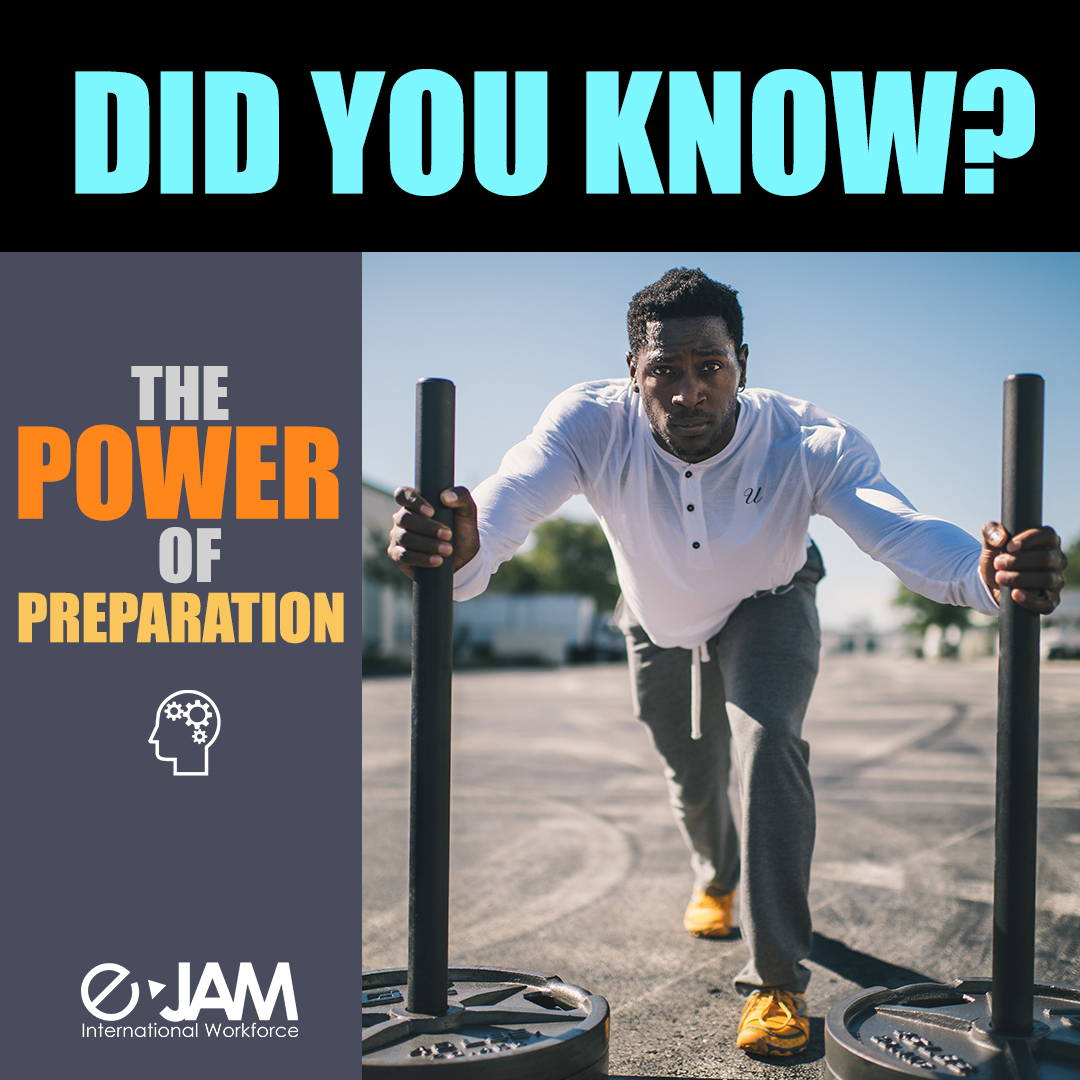Our very own athletes Usain Bolt and Shelly-Ann Fraser-Pryce didn’t spontaneously decide to defend their titles as 100m sprint champions during the 2012 Olympics.
Clearly, they had to prepare themselves, both physically and mentally to win their races. In the same manner as Fraser-Pryce and Bolt, preparing for a job in will increase your chances of securing the position you want, effectively winning the race!
Long-term preparation can be started anytime and should be a continuous process. Firstly, you need to mentally prepare yourself for the impending applications that you will embark on, just like all athletes do before preparing for a race, jump or throw. Despite the process proving repetitive, think of your end goal -- securing that job you want! You need to be able to complete an application for a job, so right now, watch this video about e-JAM's registration process, so you know exactly what to expect when you choose us as your agency, and hopefully you’ll feel more confident and mentally ready.
Next, you need to update your resume and cover letter, making sure that your personality and employability truly shines through. Too often, we quickly pull together a messy resume and vital information can be forgotten. Undoubtedly, when applying for a job, you face the hurdle of competitors, who may have different qualifications, abilities or personality traits, but don’t let this worry you. Make a list of all your old job history and volunteering experience, no matter how long or short you held the position, any example is useful and there will be one that helps you stand out. Keep this list in a visible place, so when you find a position you would like to apply for, you have easy access to all your experiences and job history. Through our Assisted Registration process, you can be professionally guided through this process so why not sign up today!
Etiquette is the final step in long-term preparation, and it is something that can prevent even the most qualified applicants from gaining a job. Can you confidently write formal letters and emails? Do you know how to dress for specific job types? Are you up-to-date on newer workplace jargon? Whilst it seems complicated, etiquette simply means politeness, and is valued in the workplace. An employer in the hospitality industry would appreciate a polite jobseeker, as he or she will be most likely interacting with the public. Long before even applying, make sure you have groomed yourself, both in your clothing and mannerisms. Ensure you have some clean, formal attire and practice speaking slowly and eloquently to a family member or friend when you can. By slowly incorporating more polite practices into your lifestyle, workplace etiquette will naturally develop, helping not only in your registration and application process with us, but also future jobs and interviews.
Preparing in the short-term must be more focused and suited to the job you are interested in. This should be simple, if you’ve taken the necessary steps listed above. For example, if you see a posting for a job on our e-JAM Twitter Page that you are interested in and decide to apply, you would hope for a quick turnaround and job offer. For this sort of outcome, you need to show a genuine interest in the specific job you are applying or being interviewed for. Take 30 minutes from your day to read up about the industry or company you want to join, taking notes so that you know some facts or the general aura of the business. There are more specific interview-based tips on our blog, such as this article on The Questions You Should Ask Your Interviewer.
At times as a jobseeker, it can feel like you are running an endless race, but with continuous long-term development and more spontaneous short-term preparation, you will discover the ways to run your final lap with style and sophistication and land your dream job.
Good luck and see you next time!
By Naomi Owolabi,
Contributing Editor,
e-JAM Team

